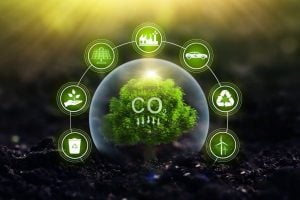Deadline: September 20, 2025
The Innovations in Sustainable Urban Transition initiative invites start-ups to develop and deploy scalable, tech-enabled climate solutions across India’s urban landscapes.
The focus areas of this initiative are Build, Operate, Dispose, and Mobility.
As India’s urban footprint expands, the construction of residential and commercial buildings is set to soar bringing with it a parallel rise in emissions and construction waste. To counter this environmental strain, the sector needs transformative solutions that drive efficiency, minimise waste, and reduce dependency on conventional, resource-intensive materials, which can include but are not limited to: material and process-led innovations that are alternatives to conventionally used construction materials such as cement, bricks and timber, and enable reduced water and energy consumption in the construction of buildings; technology-enabled and/or process-led innovations that enable the collection, transportation, and segregation of C&D waste; material and process innovations that enhance the mechanical properties of C&D waste components to increase their life.
India’s booming real estate sector is driving a parallel surge in energy needs. Addressing this demand calls for forward-thinking approaches—leveraging alternative and optimised energy sources that deliver on performance, cost-efficiency, and sustainability. Emerging innovations can include efficient HVAC systems, renewable energy systems, decentralised biogas production, and cost-effective energy storage solutions. Every person in India is currently breathing air that contains PM2.5 concentrations above the World Health Organization’s safe annual average of 5 µg/m³. Solutions may include low-cost, energy-efficient air purification systems with minimal maintenance requirements. Solutions are also needed for drinking water access through atmospheric water generators, desalinators, pipeline monitoring, operations and maintenance innovations, and improved filtration systems. Stormwater management and municipal sewage solutions may involve early warning systems, decentralised sewage treatment, mechanisation of sewer operations, and water reuse. Urban water bodies require operations and maintenance-related systems for hyacinth control, silt remediation, and water quality management.
India’s cities are expected to generate 435 million tonnes of waste per year by 2050. Interventions can include collection, upcycling, advanced sorting technologies, digital platforms for real-time monitoring, improved recycling, and advanced chemical and biological recycling to derive high-value products.
With vehicle ownership projected to nearly double by 2050, solutions are needed for traffic management, micro and last-mile mobility, EV powertrain and components, and ultra-fast charging infrastructure.
The initiative provides pilot grants of up to INR 35 lakhs for deployments over 6 months, opportunities for market access and validation, showcase opportunities to government and industry stakeholders, one-year incubation with portfolio managers, seed capital up to INR 1 crore (subject to due diligence), and mentorship through the University of Toronto ecosystem.
Start-ups with Pilot Ready (TRL 6+) or Market Ready (TRL 7+) solutions that enable low-carbon urban pathways and sustainable transitions across the built environment are eligible to apply.
For more information, visit Social Alpha.























